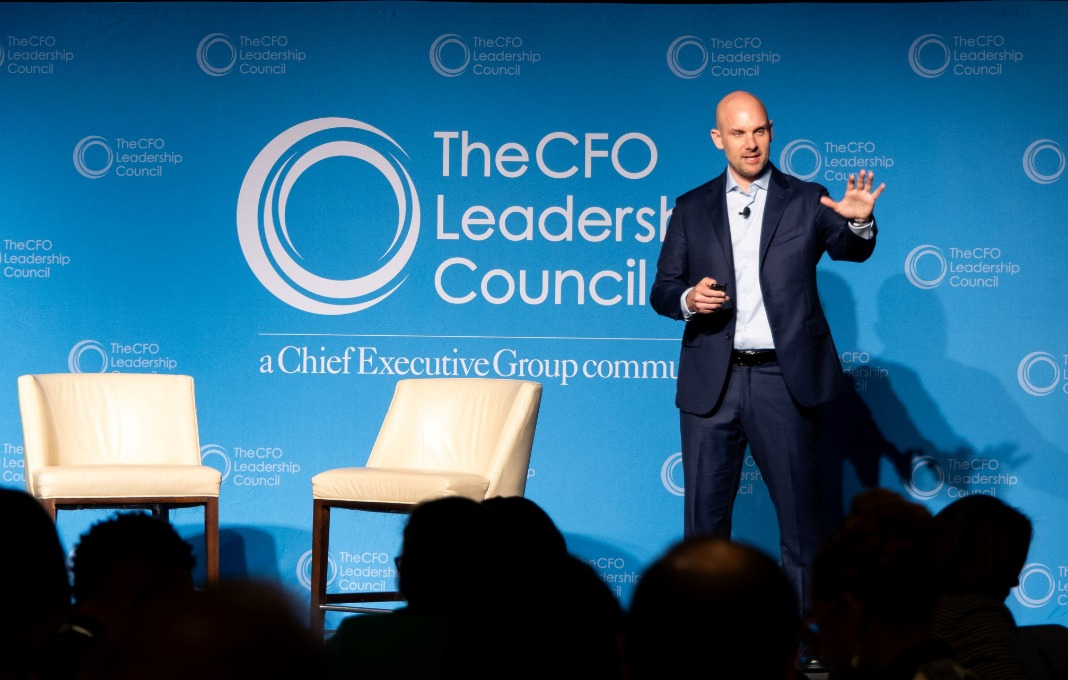The mass departures of millions of Americans from their jobs in the wake of the pandemic hit hard most industries hard. But the way for CFOs to make the best of the new employment landscape is to have their companies invest more in the well-being and satisfaction of the workers who’ve stayed rather than to seek greater control of them.
That’s the view of the person who invented the term “the Great Resignation” for the wave of employee departures across America that began in 2020. Texas A&M management professor Anthony Klotz urged attendees at the recent CFO Leadership Conference West in Phoenix to embrace a long-term view of their company’s “psychological contract” with employees instead of trying to take advantage of a slight softening in the labor market to regain some stability in the corporate ranks.
“The ‘control’ path seems safer but it’s actually more risky,” Klotz said. Instead, “When you invest in employees with increased flexibility, pay and benefits, employee well-being goes up. [And] when happy, employees will engage more in extra behaviors like helping [fellow] workers when they’re struggling, staying late, arriving early and attending non-mandatory training. There’s a strong positive relationship between where employees go above and beyond and actual firm performance.”
Klotz maintained that strong corporate cultures are “built on trust” but that leaders must demonstrate vulnerability before they can earn employees’ trust. Doing so “causes the solid ground of trust to materialize beneath our feet.”
He conceded that the “new world of work” feels like “leaping into the unknown” but said that building trust with employees “up and down and across the org chart makes a company stronger. It’s a key moment where murkiness and the unknown in the future of work can feel like a threat to business performance, but it’s also an opportunity to build a stronger bond with employees.”
Klotz said that the pandemic prompted a mass “rethinking about my relationship with work” of the sort that “had never happened before.” Such reckonings have occurred with individuals at key moments in their lives, such as after having a child or getting passed over for a promotion. “But the pandemic brought this to all of us at the same time, while all of us were locked down at home with nothing but time to think about it,” he said. “It was a bit of a collective mid-life crisis. And it had a big impact on the workplace that we’re still feeling today.”
Among Klotz’s ideas for CFOs to help turn the page from the Great Resignation:
Recognize the “psychological contract.” It’s not the traditional “employment contract, he said. “It’s what we think we’re getting out of our jobs—pay, satisfaction, well-being—and what we think we’re putting into our jobs. Is that contract fair based on what I signed up for?”
Klotz said a collective reconsideration of their psychological contract “led many people to say they want to make a change and do something different,” which helped fuel the Great Resignation. “Organizations that had taken eyes off employees noticed that this was an opportunity, a chance for them to rethink work, to embrace autonomous decision-making and better benefits, such as sabbaticals. Many organizations are still working through that today.”
Don’t make a control grab. In such a situation, Klotz said, some leaders wanted to “take control of the situation” with steps such as replacing more worker with robots and setting up more surveillance of employees. “They would think, ‘As soon as the economy isn’t as favorable for workers, the Great Resignation is going to be over,’” he said.
“But quitting isn’t the [only] problem. If 20 percent of your workforce quits, that’s bad, but if 20 percent to 30 percent more aren’t quitting because they can’t, that’s a worse situation.” And it’s where the term “quiet quitting” came from.
Beware “employee deviance.” Frustrated workers may escalate their displeasure in an organization with outright hostility. “If you cut pay,” Klotz said, “Employee theft will go up. As human beings, we find ways of getting even. Workers trapped inside companies are resentful, and that has spawned other [terms], such as ‘loud quitting.’ They can go on TikTok and damage the employer brand. There’s also ‘rage applying’ for [other] jobs among employees who feel that quitting isn’t an option, and their co-workers see that as well.”
Partner with CHROs. As with CFOs these days, Klotz said, human resources executives “have a bigger seat at the table” in the post-pandemic corporation. “There is an opportunity to partner with the CHRO and say, ‘Where does analytics say we can invest in employees and get a bigger payback?’” Also, work with CHROs to find out what’s going on among rank-and-file employees. “Are systems in place? Often, the experiences of frontline workers get trapped in middle management.”
Work on “offboarding.” Most employee turnover happens within the first year, especially late in that period, Klotz said. “Think about how much you invest in onboarding, yet that statistic still exists,” he said. “Employees say, ‘This isn’t what I thought it was going to be.’ But what happened in that first year that leads to high turnover? There’s probably some low-hanging fruit” that can be harvested if companies are committed to conducting effective exit interviews.
Beware the “generational differences” canard. Klotz said the best research so far has shown few actual differences among generations in terms of how American workers approach leaving their jobs. Instead, he said, a key dynamic is that boomers and millennials distrust one another’s attitudes. “Those two generations are particularly adversarial,” Klotz said. “But studies show where there are small interventions to debunk generational myths, a lot of attitudes went away in those individuals.”








